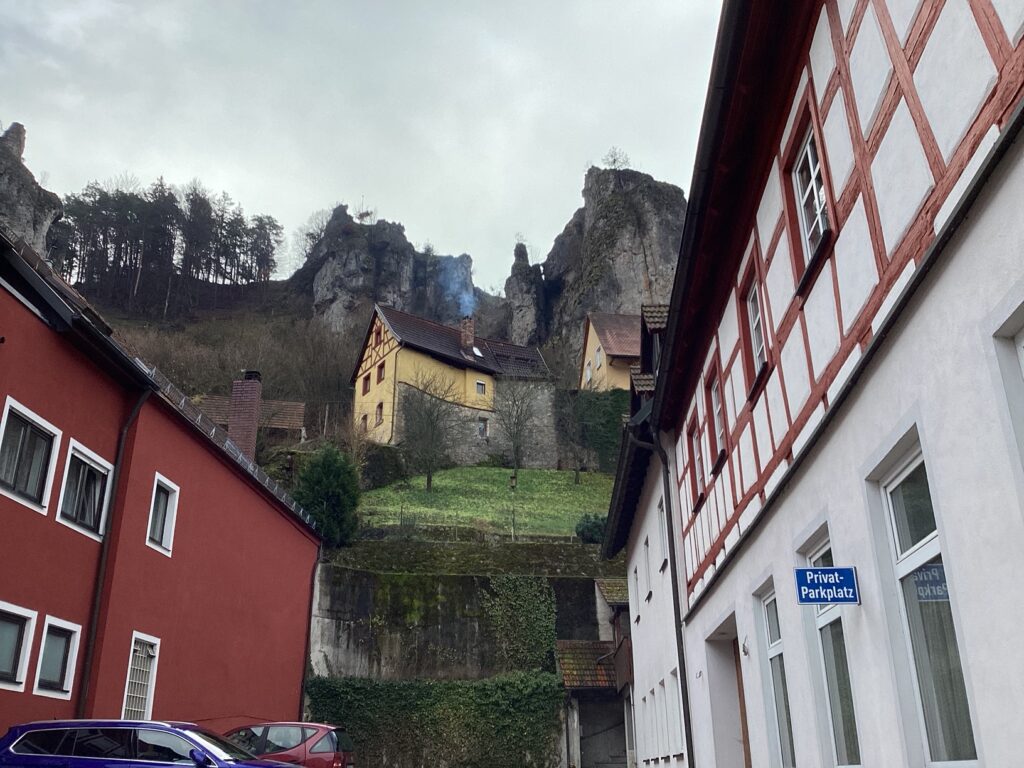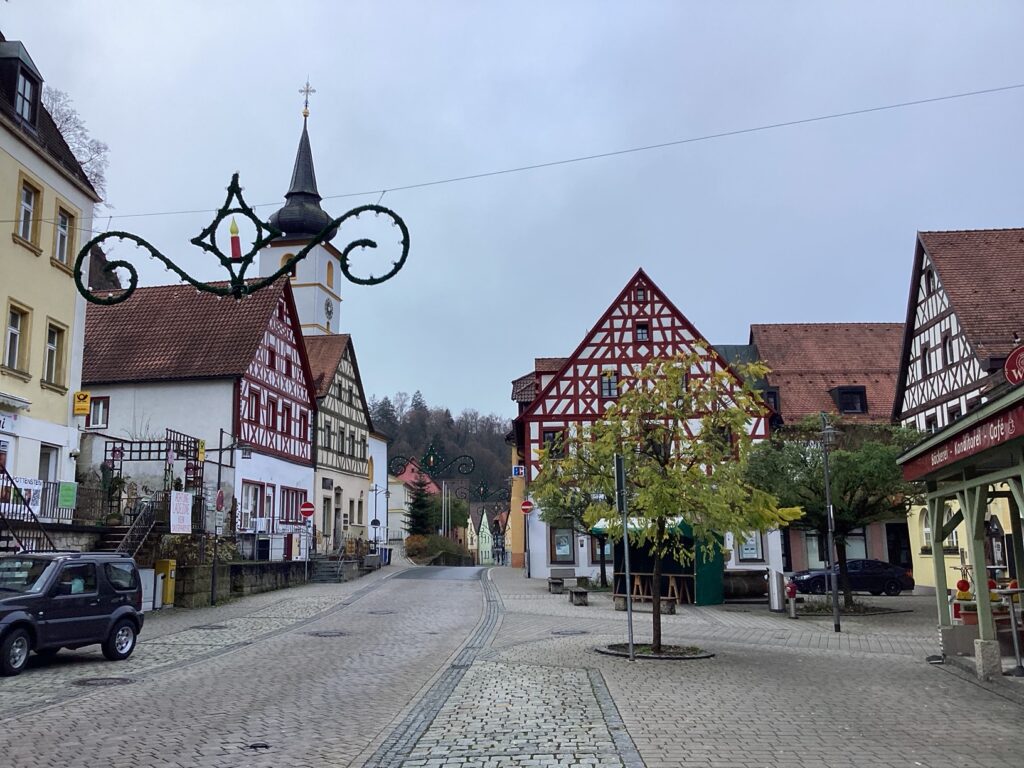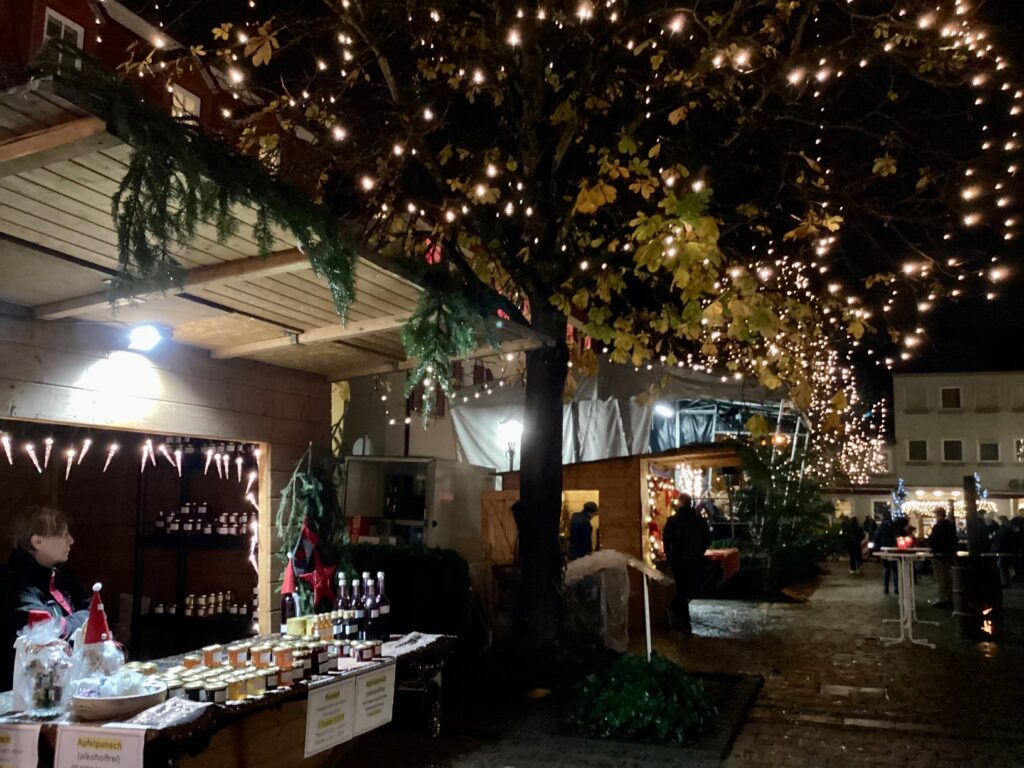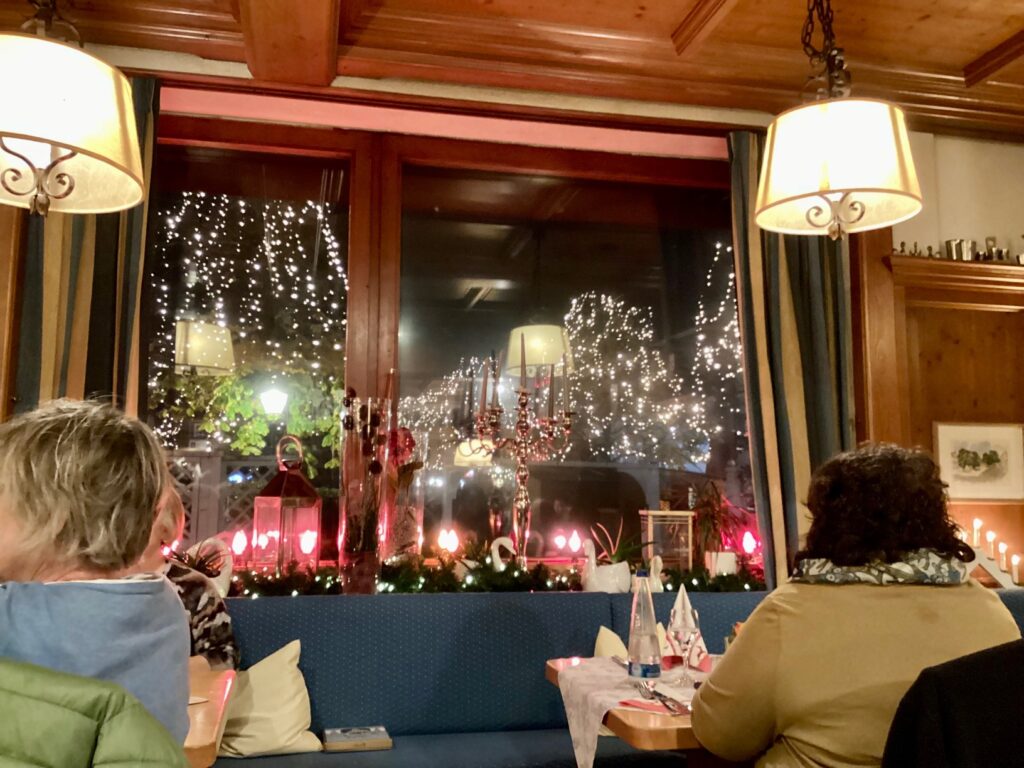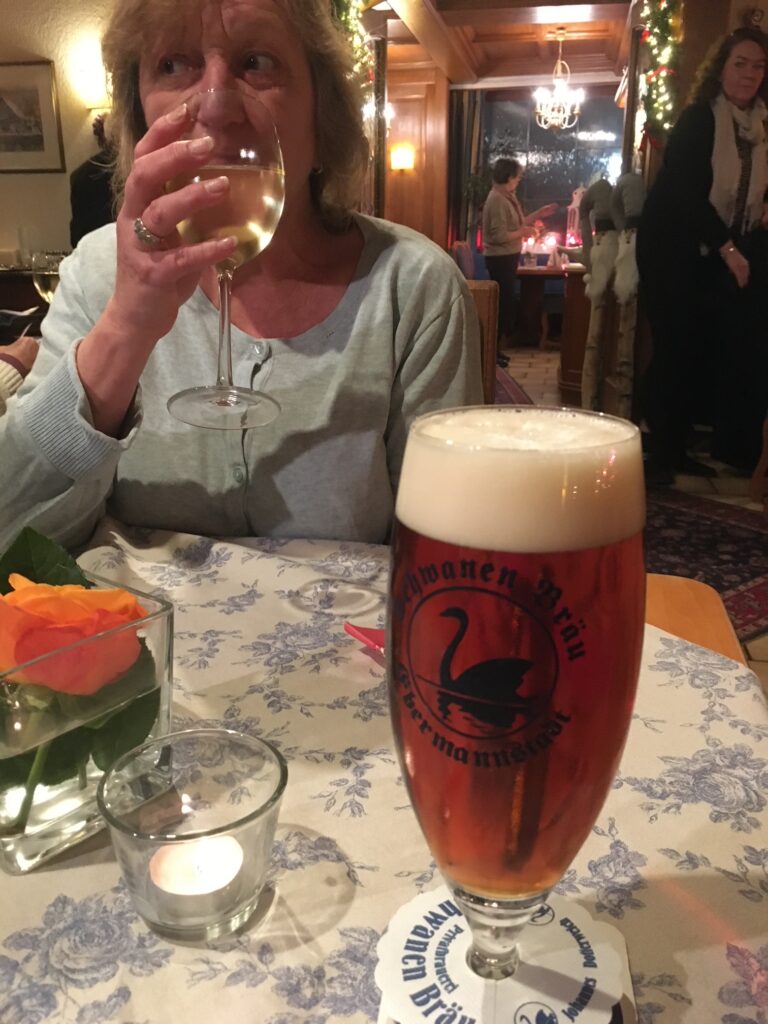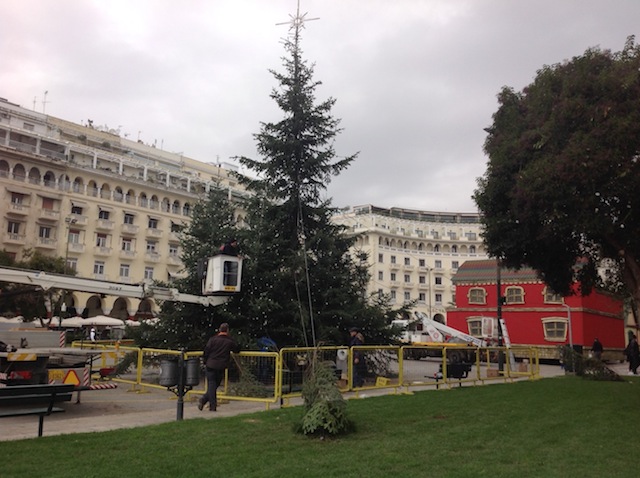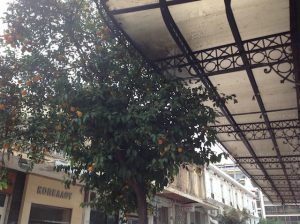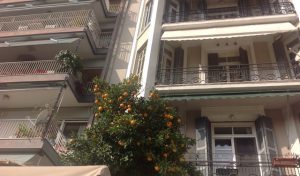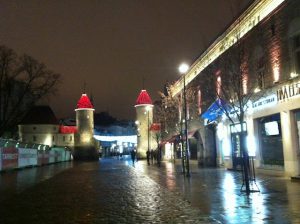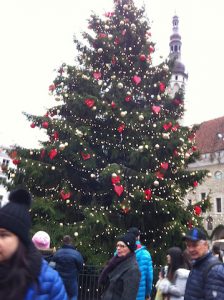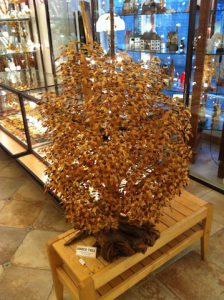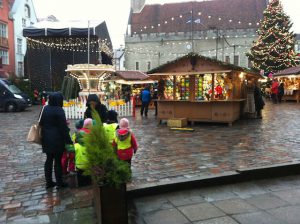On our three-day trip to the Fränkische Schweiz (Franconian Switzerland), we got to see and do quite a bit of everything.
Pottenstein is always worth a visit. There are many shops along the main road, but some were closed during this off-season.
We also went to our first Christmas market of the season. This one was in Ebermannstadt (25km southeast of Bamberg). What a lovely small market it was. We bought many things such as mulled wine, Bratwurst, Christmas cookies, Gin&Tonic jam, and much more.
Prices are still lower in that part of Germany, so spending money is more fun.
After the Christmas market, we entered one of the restaurants located at the market square. This one, Brauereigasthof Schwanenbräu Ebermannstadt, is one of the finest restaurants I’ve ever been to.
Our view reminded me a bit of looking out at Rockefeller Plaza in New York, also in November of one year.
Service was outstanding (very quick and with a smile each time), and my husband and I both had one of the local specialties. He had breaded carp, and I had a small order of Krenfleisch (boiled pork or beef) in a horseradish sauce with a dumpling.
In my hometown area of lower Franconia, this dish is also known as Fränkisches Hochzeitsessen (Franconian Wedding Meal), and is always served with Bandnudeln (ribbon noodles).
Once I posted a photo of this kind of meal with ribbon noodles on my Facebook page Fränkisch für Ausländer (Franconian Dialect for Foreigners), and this caused quite a stir. Some readers insisted this can only be served with potato dumplings, or boiled potatoes. In my 40+years of cooking and eating out, I had only seen this dish served with noodles.
Then there it was on the menu – with a dumpling! From now on, I will only eat this version. The small white strings you see on the outer part of the plate are radish strips.
This dish is always served with Preiselbeeren (lingonberries).
And yes, we got a six-pack of dunkles Lager to take home.
Visiting Franconian Switzerland means eating and drinking well. At least, to me.
For a mini lesson in the upper Franconian dialect, learn how to say “Of course!”:
“No freili!” The literal translation would be: Ja, freilich = Yes, of course.
So if someone asks you whether you wanted another beer, “Möchten Sie noch ein Bier?”
“No freili!” is the perfect response.
